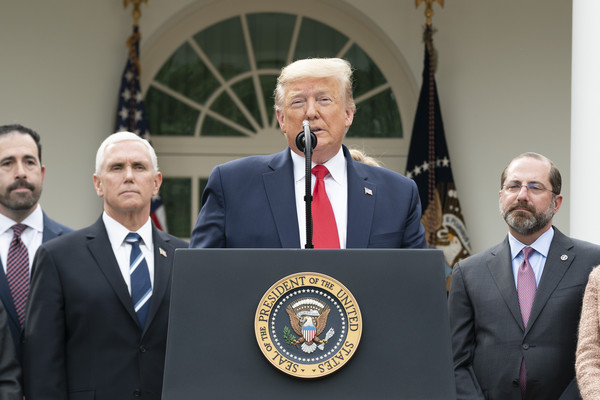Throughout human history, the distinction between “us” and “them” has always been present. “Us” refers to people around our vicinity who may share the same language, religion, and customs. We are not responsible for “their” actions, and we are always distinct from “them” and owe “them” nothing. This instinctive and timeless mentality has been a fundamental reason for war and struggle between ethnic groups, creating geopolitical borders over time. Today, the trade of ideas and goods has brought us the era of globalization and thus reduced the significance of these physical borders. Yet, the outdated and self-serving mentality persists in the form of xenophobia and racism.

As is now public knowledge, the new coronavirus (COVID-19) originated from Wuhan, China. In response to its spread through China, Korea, and other Asian countries, many European countries set immigration regulations from countries with high rates of infection. Bound up by anti-immigration measures and misrepresentation of Asians, many began to frame Chinese people as uncivilized barbarians who bring infectious disease. These xenophobic sentiments are even validated by Donald Trump’s statements referring to the outbreak as the “Chinese Virus”. Not only has this caused Chinese-owned small businesses to close worldwide, but it has also triggered cases of discrimination and violence towards Asians globally.
Of the many recorded instances of discrimination, one video was particularly attention-catching. The video, posted online, shows an Italian man punching a Filipino man at a Lidl supermarket in Casalpusterlengo, Italy. The fight seems to have been triggered by a racist remark made by the Italian man regarding the outbreak of COVID-19; the Asian man repeatedly shouts that he is not Chinese, and has nothing to do with the virus. This short ten-second video accurately depicts the “us” and “them” mentality that we all quickly revert to, as the Filipino tries to prove his innocence by shifting the blame to the Chinese. Although the Filipino is indeed a victim of violence and racism, he unconsciously and simultaneously partakes in spreading racism in the Italian community. The irony shown in this particular case is that people from the same race (Asians) are also participating in the hate-crime against the Chinese, showing both xenophobia and racism in play.
Media’s outrageous perpetuation of the fear of COVID-19 is adding fuel to the fire of the “us” and “them” mindset. This exclusive and instinctive mindset that many individuals have adopted should be suppressed. Those with authority and leadership should act as role models in dealing with the COVID-19; however, these “role models” seem to be doing the exact opposite. Amidst the public-health emergency, Trump stressed his regular rhetoric — the importance of building a wall between the US and Mexico — now, to prevent the spread of COVID-19. Instead of providing scientifically backed solutions to mitigate the spread of the virus, he is instead spreading hate against other groups, along with — perhaps more dangerously — misinformation regarding how to prevent the spread of the disease. In fact, the US has far more confirmed cases (32,722) than Mexico (65), as of March 22.
Although I do not have any intention of downplaying the significance of the COVID-19, the infectious disease seems to be the dependent variable in a large-scale social experiment that aims to test how much of the nominal term — “globalization” — we have truly adopted in society. So far, the countless cases of racism in social and political environments seem to show how inherent it is in society, and how the infectious disease is being used as a justifiable excuse to racism and xenophobia. Fear of the disease is blinding our conscious ability to make correct and fair judgments, encouraging the “us” and “them” mentality. However, we must remember that times like this are most efficiently dealt with solidarity. After all, we are all equally human.

